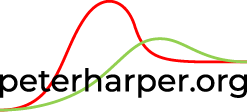BEING BRITISH IN THE MODERN WORLD
“Citizens of Nowhere”. The contemporary debates about nationalism and ‘Britishness’ (or indeed ‘Frenchness’ or ‘American-ness’ if there is such a word) have made me stop and think. What is it to be British now? Let me ask myself some questions
We teach the kids all the nursery-rhymes and fairy-stories. We get them to take parts in the panto. We go round bloody cathedrals for days at a time. We visit the Houses of Parliament, the Tower of London, the Monument. We take them to the Globe to see Richard III. In drag. We always take them along to the polling station to see how it’s all done. We teach them how to make scones and Yorkshire pudding and bubble and squeak. We observe Pancake Day with much song-and-dance. And the Ashes and the Six Nations. Are we merely insufferable, over-earnest parents?
Oh God, it’s Pancake Day. With maple syrup fresh from the woods of Wisconsin.
I suppose we are trying to connect them with their ‘heritage’. Because, in a nutshell, life is more fun with lots of heritage. I mean, isn’t it? But does it really matter where it comes from? I have much enjoyed being British — wouldn’t have it any other way — but I am still aware it’s even more fun when it interacts with other-non-British elements. Taking the kids to the British Museum to see the Rosetta Stone and the Elgin Marbles is sort of ‘British’ but shows a window into other and equally magnificent worlds. Another night we’ll go to the Royal Festival Hall (yeah!) and hear Barenboim play the Waldstein sonata (and in case you think this is Cruel and Unusual, that one was a music student and will bore his own grandchildren “Did I ever tell you I heard Barenboim play the Waldstein at the RFH!” “Yes, grandpa, you have mentioned it…”). But here is another window, into high European culture, and the dazzling worlds that lie through it. That is part of our heritage too. Meanwhile outside the Festival Hall is the great bust of Nelson Mandela, and we always stand and pay our respects, weeping. That too.
And of course, we’ve been abroad and learned to honour both the distinctions and commonalities. We know how to use chopsticks, how to cook soba noodles, even how to make them. We have adopted (and adapted) all manner of exotic cooking techniques and use them with an inevitable British accent, much to the amusement of our foreign friends. Our vocabularies have expanded, slikkepot, kasha, hashioki, ash-e-kurdi, osthuvel, appelstroop. We can recognise a Dalekarlian painting, a Bokhara carpet, or the ox-herding pictures of the ten stages of enlightenment. In fact, one of my sons recreated the ox-herding series with a pressure-hose on the walls of a cow-byre in Wales. In true Buddhist spirit, he did it by removing bullshit.
The stages of enlightenment
Ah, Wales! It reminds me that some of my children (don’t ask the details) are not only British, but Welsh, and indeed speak Welsh. So they have yet another heritage to draw upon, that of the gwlad beirdd a chantorion, the land of bards and singers, and it makes me want to burst into to song just thinking of it. But isn’t it true of us all? Aren’t you slightly proud to be Cornish or a Highlander, or from Yorkshire or the Forest of Dean or the Elephant and Castle? No catcalls, my Dad was from the Elephant….
“Citizens of nowhere”? We know what you mean, but really we are the opposite. It comes so naturally to be a special kind of British, and a general kind of British, and a European, and open to all the world. These thousands of elements weave together to make something new in history. The more strands, the stronger the rope.



